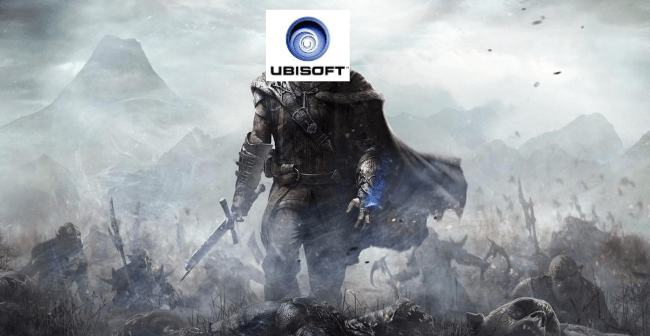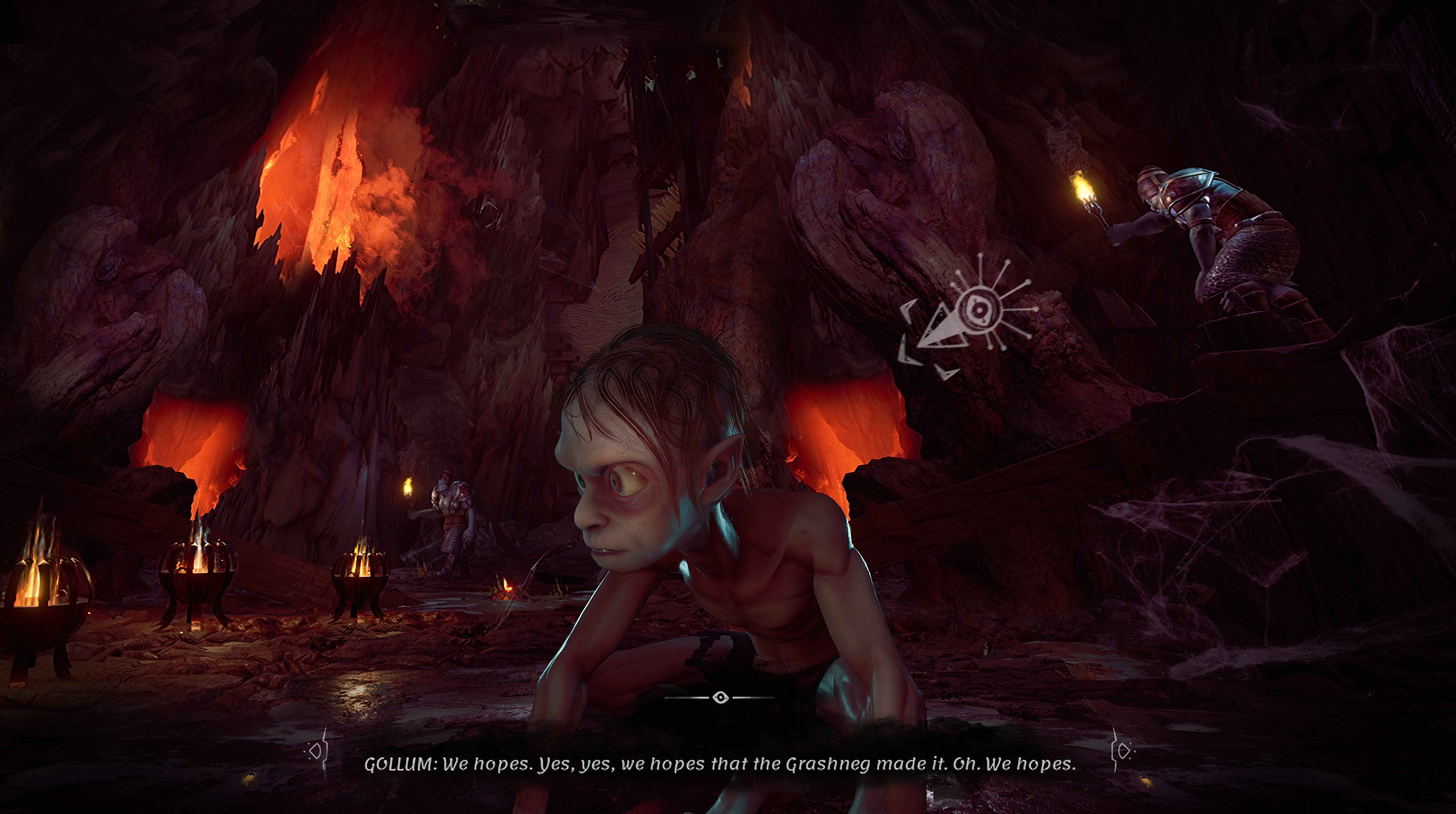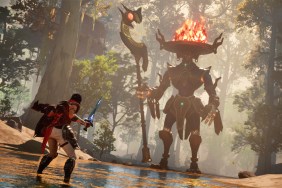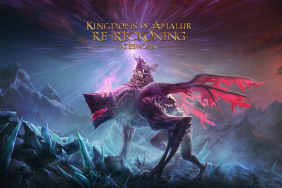Publisher Ubisoft made news in 2018 with the announcement that it had signed on Mike Laidlaw, the creative director of the Dragon Age franchise for Bioware, as well as having credits in Jade Empire, Mass Effect, and more. And just as quickly as Laidlaw had been hired, he was gone one year later. The reason, as we found out in a report today from Bloomberg’s Jason Schreier is because of a planned fantasy RPG project for Ubisoft, headed by Laidlaw, to be based around the mythology of King Arthur tentatively titled Avalon. Laidlaw’s project was determined to be not good enough. What happened to cause a known name in the industry pick up and leave? It involves high fantasy and Ubisoft—or at least former CCO Serge Hascoët—thinking itself to be above the works of renowned fantasy author J.R.R. Tolkien.
And let me tell you: Ubisoft is no Tolkien.
Oh hey, I worked on the project twice for short periods of time. I loved the narrative of the game and we had a super strong writing team early on. The entire team was great and driven by passion which was then crushed by Serge. https://t.co/EdZA8S8elv
— Jordan Mychal Lemos (@crypticjordan) July 28, 2020
The call to meddle with Avalon and its creator was on the shoulders of the now-resigned former chief creative officer Serge Hascoët–gone amid the wave of sexual harassment and toxic culture accusations that have plagued Ubisoft the past two months. What was Hascoët’s problem with the project? If Ubisoft was to make a fantasy game then it needed to be “better than Tolkien,” according to those with inside knowledge of the project that spoke with Bloomberg. This wasn’t an out of place power move for Serge within the walls of Ubisoft, known to strangle creativity and micromanage projects (Hascoët reportedly stifled any attempts to have female-led Assassin’s Creed games). Even after Laidlaw’s team attempted to change the setting multiple times in order to appease Hascoët, his seeming hatred of fantasy tropes gave the project the axe.
“The game’s developers were shocked to see the project impeded simply because the chief creative officer didn’t like its setting,” according to the report. There’s some real ego at work to say, flat out, that the only way to approach a specific setting in an entertainment medium is by being better than perhaps the most popular trendsetting example within said genre. In the case of Tolkien and high fantasy, his works on The Hobbit and The Lord of the Rings trilogy stand head and shoulders above the rest, with its influence seen across multiple genres and mediums. But, the other thing that irks me in regards to this whole situation is the idea that high fantasy is so overplayed and derivative of itself that the only thing that can possibly sell is something that is groundbreaking and, as Hascoët puts it, “better than Tolkien.”
Which is just a ridiculous statement. It’s like if a rock album was canceled by a well known band because it wasn’t better than The Beatles. And that comparison is apt because much like high fantasy, rock and roll exists in this bubble where even the most mundane, brainless creations manage to sell and make money and find a niche audience. Likewise, high fantasy as a setting in all mediums–fiction writing, television, film, video games–sells because there are a baseline love and fascination with the genre and setting. It’s why there was technically a “Game of the Year” edition of something as atrocious as the PS3-era “classic” Two Worlds. It’s a setting that allows the use of tropes to tell literal and metaphorical tales that not only can speak to the modern age, but also speak about the nature of humanity, perseverance, and the classic sense of adventure that drives so much fiction. There’s a reason why the likes of Skyrim, World of Warcraft, and more high fantasy games have dominated the landscape for decades. There’s plenty of room at the round table.
I’m going to out myself here a bit, but I absolutely hated 2012’s Kingdoms of Amalur: Reckoning. Not only did the stories of its development involving former baseball player Curt Schilling immediately drive me away from wanting to support the game, but it just came off as more generic “chosen one” high fantasy tropes that I had already played time and again. Its story was even written by the king of the generic high fantasy novel, R. A. Salvatore. And yet, Amalur sold 1.2 million copies in its first 90 days, is long-beloved by fans after the fact, and will soon be receiving a remaster. My own feelings about it notwithstanding, it’s the perfect example of how a piece of entertainment doesn’t need to surpass its genre’s most influential examples in order to make good. Kingdoms of Amalur is no Tolkien and it did just fine.
The day of Re-Reckoning is coming!
Kingdoms of Amalur: Re-Reckoning is scheduled for release September 8th, 2020 on PC, PlayStation 4 and Xbox One, featuring stunning visuals, refined gameplay and all new content!
Website: https://t.co/bIiWHJXYol#KingdomsOfAmalur #ReReckoning pic.twitter.com/cvS3S3nziG
— Kingdoms of Amalur: Re-Reckoning (@ReckoningGame) July 7, 2020
And guess what: Ubisoft isn’t above doing “just fine.” In fact, they perhaps need more of that in their stock, especially at a time when public opinion against them is at an all-time low and the company needs easy wins more than ever. Ubisoft continues to tread water and mill the same sources of franchises over and again, with its most recent Ubisoft Forward event showing nothing new or exciting–just another series of returns to the proverbial well. In fact, even before recent upheaval thanks to allegations against the company’s management, they had reorganized the editorial department in an attempt to make less formulaic open-world games all derivative on on another. In a world of game development that is beginning to feel more and more “either sell the most or don’t sell anything at all,” it is publishers like Ubisoft that need to stop caring about breaking sales records that keep investors floating in money and maybe find happiness in the middle ground, allowing passionate creators to carry out their ideas and see where it goes. It seems to be working for EA at least.
There’s a Tolkien quote I love from his essay On Fairy Stories (what high fantasy was referred to by Tolkien): “The realm of fantasy is wide and deep and high and filled with many things: all manner of beasts and birds are found there; shoreless seas and stars uncounted; beauty that is an enchantment, and an ever-present peril; both joy and sorrow as sharp as swords.” It highlights what makes high fantasy work so well. Its settings are boundless and ever relatable. The worlds of dragons, magic, and the unknown speak the perils and unknown of our own world, and the worlds we find within ourselves. And that doesn’t need to be better than the best. Sometimes that relatability is just good enough, and that’s fine.









